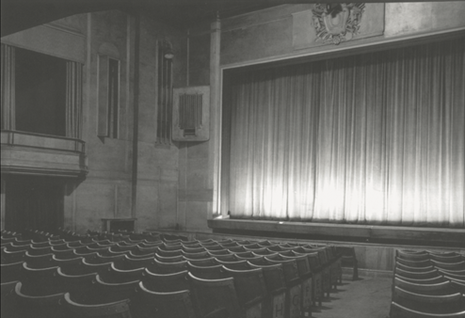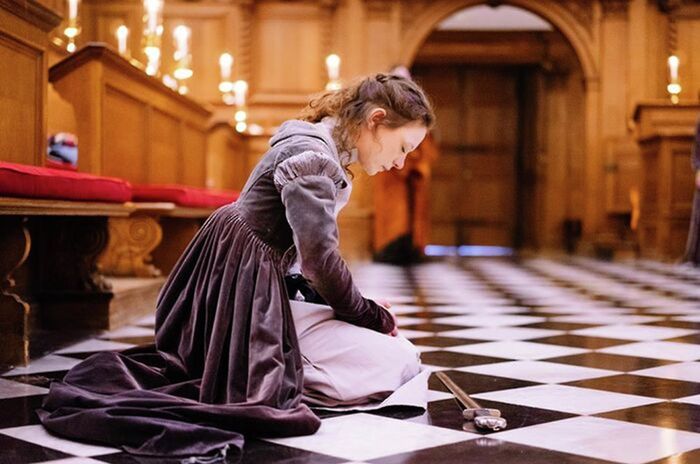A spotlight on Cambridge theatre history
Pollyanna Chamberlain celebrates Keynes, cliffs and composers in the myths and legends of Cambridge on stage

Amateur theatre is a wonderful way for Cambridge students to relieve the stress of their heavy workload – but since the curtains went up on the first student show and the first lines were uttered, Cambridge theatre has gone beyond amateur dramatics and come to play a significant role in British cultural history. The students of Cambridge have performed in a variety of professional environments, with some surprising figures taking the lead. Off stage, Cambridge life has always been rich with scope for stories, and many playwrights have taken inspiration from their time at the university.
“Economist J. M. Keynes directed Hamlet in 1936 while a don at King’s”
Despite its unlucky number of seats at 666, which seems vulnerable to putting the superstitious world of actors off performing, the Cambridge Arts Theatre has been home to many student shows since its opening in 1936. The Marlowe Society, founded in 1907 to promote Elizabethan and Jacobean works, has put on 22 different productions there in total. Its performances have largely been works of Shakespeare such as Coriolanus in 1951, and economist J. M. Keynes directed Hamlet in 1936 while a don at King’s. At first, it seems difficult to imagine the man to whom we owe the term ‘Keynesianism’ in a theatrical role, but with his personal romantic history involving artists, writers and ballerinas, it might have been predicted – Keynes had a particular fancy for the arts.
The Arts Theatre hosted its very first Greek Play in 1936 with the performance of The Frogs by Aristophanes and has done so every year since. The student Greek Play is a major point of pride in the theatrical life at Cambridge, and rightly so. Mask work and plays by the ancients are rarely taught outside of a classroom or prestigious drama school, and so students are truly lucky to be able to both watch and perform in such beautiful stagings of classical works. A chance to see such performances is transporting and thought-provoking, just what any professional play in the West End or South Bank aspires to be, but these productions have inspiring histories that have influenced the arts more generally, beyond the theatre.
“The legacy of Cambridge theatre has reached beyond the upper circle of an auditorium and flooded concert halls”
Composer Ralph Vaughan Williams’ ‘The Wasps Suite’ is one of his best-known works, a fantastic piece of music that perfectly captures a chorus of wasps in the humming and murmuring of the string section – a highly recommended listen for those who would like to explore instrumental music, although perhaps too frantic to revise to! Prior to the music’s arrangement into an orchestral suite in 1912, Vaughan Williams had originally composed ‘The Wasps’ for the Aristophanes play of the same name, the Cambridge Greek Play of 1909. The legacy of Cambridge theatre has reached beyond the upper circle of an auditorium and flooded concert halls with the buzz of Vaughan Williams’ orchestral music. The Cambridge Greek Play has transcended the confines of one art form and made a huge impact on the variety of British arts we have today.
But professional theatres of Cambridge do not only house the ‘serious’ works of Sophocles and Shakespeare. The lyrics of Sir William Gilbert’s ‘F sharps’ and ‘carps’ have been brought to life on the Arts stage by the Gilbert and Sullivan Society, who have escaped the clutches of Cambridge life and sailed, singing sea shanties all the way, to Cornwall. The beautiful Minack Theatre is an amphitheatre situated near Land’s End, and Cambridge students have played to a public audience of up to 5000, with the sea whispering and crashing in the backdrop. The large audience is not even the scariest part of these particular student shows, as the theatre is on the very edge of the cliffside. Actors must not dance too hard or they will fall off the edge!
Many renowned playwrights have come out of Cambridge, and one can’t help but speculate about how much of their works were inspired by their student lives, both on and off the stage. Michael Frayn, the writer of the comic play Noises Off, wrote of students returning to their college and getting involved with the college master’s wife in a bedroom farce called Donkey’s Years, 1976. Hopefully Frayn’s narrative is not drawing too closely on his own experiences!
In a time of fears that theatre may be outstripped by the digital age, it is exciting to see the history of Cambridge amateur dramatics unfold in both Cambridge and beyond, with every year bringing something new. There really is no business like show business; with its elements of talent, luck and risk, we can never predict what will be the next big hit and dance its way into the future, creating a legacy of song and speech that will be entrenched in Britain’s cultural memory.
 News / University Council rescinds University Centre membership20 February 2026
News / University Council rescinds University Centre membership20 February 2026 News / Hundreds of Cambridge academics demand vote on fate of vet course20 February 2026
News / Hundreds of Cambridge academics demand vote on fate of vet course20 February 2026 News / Cambridge academics sign open letter criticising research funding changes22 February 2026
News / Cambridge academics sign open letter criticising research funding changes22 February 2026 News / Union cancels event with Sri Lankan politician after Tamil societies express ‘profound outrage’20 February 2026
News / Union cancels event with Sri Lankan politician after Tamil societies express ‘profound outrage’20 February 2026 News / Judge Business School advisor resigns over Epstein and Andrew links18 February 2026
News / Judge Business School advisor resigns over Epstein and Andrew links18 February 2026









